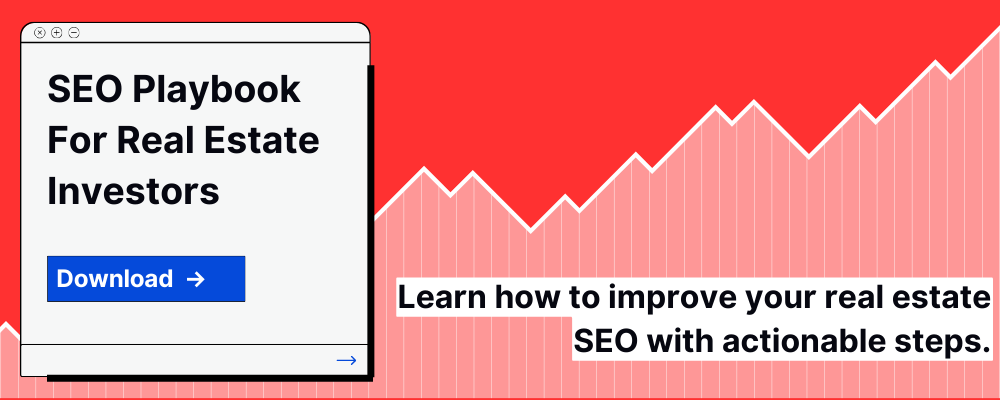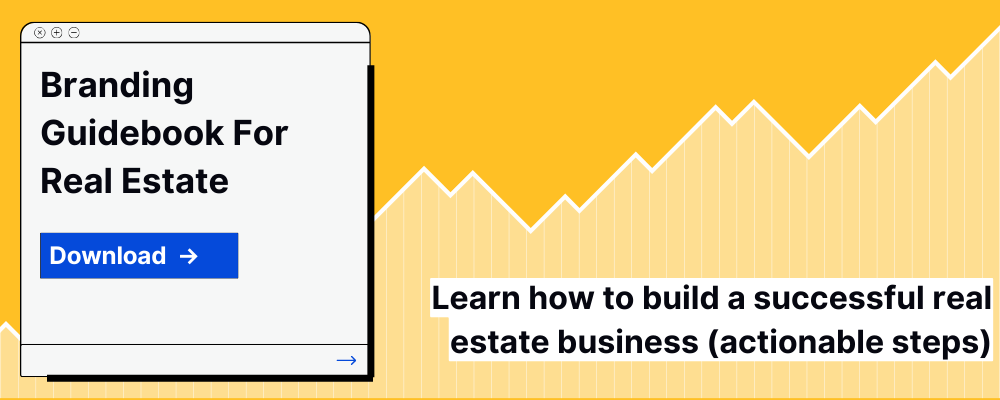How Do Real Estate Marketing Packages Benefit Realtors?

How Do Real Estate Marketing Packages Benefit Realtors?

In this guide, we’ll break down the commercial real estate marketing packages and pricing structures, equip you with the knowledge you need, and help you make informed decisions to maximize your marketing ROI.
The digital evolution of the real estate market has compelled the real estate community to change their marketing strategies. It’s not enough to stick a “For Sale” sign in the yard and hope for an immediate sale.
These days, you need to be at the top of your game to get ahead of the competition, get noticed by the right people, and improve your sales.
Imagine this scenario: You have an exceptional property that deserves the spotlight. The question is, how can you make sure it grabs the attention it deserves in a crowded market?
Let’s start with the basics.
What is a marketing plan in real estate?
A real estate marketing plan is a strategic guide that outlines the specific actions and strategies a real estate agent or company will use to promote and sell a property.
It’s like a roadmap that helps guide all the marketing efforts to attract potential buyers and maximize the chances of a successful sale.
A marketing plan in real estate outlines strategies to promote properties and attract buyers. It includes market research, branding, and digital efforts. Utilizing real estate marketing packages can streamline this process by offering bundled services like SEO, social media, and content creation to enhance property visibility and drive sales.
Think of it this way: when selling a property, you want to reach the right audience, create awareness about the property, generate interest, and ultimately convince potential buyers to make an offer.
A marketing plan helps you achieve all that by organizing your marketing activities and making sure they are effective.
What approach do we take when you opt for our real estate marketing package?
Every real estate company has a trial-and-error period when experimenting with their marketing strategies.
Whether a marketing plan works for you depends on many factors like demographics, location, the combination of marketing channels (we’ll discuss the various marketing channels below), quality of content, etc.
When you opt for our real estate marketing packages, we start with a tailored strategy focusing on your specific needs. Our approach includes targeted digital advertising, optimized SEO, engaging content creation, and detailed market analysis to boost property visibility and attract qualified leads efficiently.
We’d love to help you figure out your real estate marketing approach by sharing our approach at UpInFifty when handling our clients’ real estate marketing.
Step 1: Understanding your real estate goals
At UpInFifty, our real estate digital marketing approach begins with a deep understanding of your unique goals and objectives. Understanding your real estate goals is crucial for choosing the right strategy. Tailoring real estate social media marketing packages to your objectives ensures targeted promotions, whether for selling, buying, or renting properties. These packages offer customized solutions to meet your specific needs and achieve your real estate goals efficiently.
We believe every real estate venture is different, and tailoring our strategies to meet your needs is crucial for success.
For example, you’re a real estate agent looking to generate leads for a luxury condo project.
We would work closely with you to understand your target audience, desired sales volume, and any unique selling points of the property.
This initial step helps us design a marketing plan that aligns perfectly with your goals.
The marketing plan would be entirely different if you were looking to generate leads for a commercial real estate property. Your audience, the property USPs, the pricing, and your desired sales will be distinct.
Learn about the different real estate sales funnel stages.
Step 2: Planning and creating a marketing strategy
The next step in a comprehensive real estate marketing package is thorough planning. Planning and creating a marketing strategy involves setting goals, identifying target audiences, and choosing effective tactics. Real estate social media marketing packages can streamline this process by providing bundled services like digital advertising, SEO, and content creation, ensuring a comprehensive approach to boost property visibility and attract potential buyers.
The marketing team will work closely with you to create a customized marketing strategy that makes sure your property gets maximum exposure and attracts quality leads.
The team conducts market research to identify the most effective channels and platforms to reach potential buyers.
They’ll develop a content calendar outlining the timing and content of various marketing initiatives, such as social media campaigns, email newsletters, or property listing optimization.
Step 3: Expert execution of the marketing plan
Once the plan is in place, the marketing team will execute each initiative. They will create compelling content and engaging advertisements to capture the attention of your target audience. Expert execution of a marketing plan involves precise implementation of strategies to maximize property exposure and attract buyers. Utilizing commercial real estate marketing packages ensures a comprehensive approach, combining SEO, social media, and targeted advertising for effective results. This professional approach enhances visibility and drives successful property sales.
Based on your requirements and plan, they will design a high-converting landing page, write persuasive property descriptions, create drip campaigns and informational newsletters, etc.
They’ll leverage search engine optimization (SEO) techniques to improve your property’s online visibility helping your company appear in relevant search results.
Step 4: Measuring key performance indicators (KPIs)
We stress real measuring key performance indicators (KPIs) when you choose our real estate marketing package. Measuring key performance indicators (KPIs) in real estate involves tracking metrics like lead generation, conversion rates, and ROI. Using commercial real estate marketing packages helps streamline this process by integrating tools to monitor and analyze these KPIs, ensuring effective campaign performance and optimal marketing strategies.
KPIs are specific metrics that reflect the success of your marketing initiatives and help assess their impact on your overall business goals.
For instance, common KPIs in real estate marketing include:
- The Number of property inquiries received.
- The number of property showings scheduled.
- The percentage of properties sold or rented.
- The return on investment (ROI) of your marketing campaigns.
Monitoring these KPIs consistently helps us determine if our plan is working or not, and if it isn’t, it helps us improve upon it.
Step 5: Reporting and performance measurement
Real estate marketing packages typically include detailed reporting to inform you and enable data-driven decision-making.
The team will provide regular updates on the performance of your marketing campaigns, allowing you to track their effectiveness.
Reports on website traffic, social media engagement, email open rates, and other key metrics will be submitted to you for transparency and better decision-making.
These reports can help you understand the level of interest generated by our marketing efforts and identify areas for improvement.
What marketing channel works best for real estate?
The best marketing channel for your real estate business will depend on your target audience, budget, and specific goals. Social media and online advertising are highly effective for real estate, providing wide reach and targeted ads. Using real estate social media marketing packages can enhance these efforts by integrating SEO, content creation, and lead generation to maximize visibility and attract potential buyers.
Most real estate agents and companies often use a combination of these marketing channels to maximize their reach and increase their chances of capturing quality leads.
1. Search Engine Optimization (SEO)

You cannot deny the effectiveness and power of SEO when you are looking for organic and high-quality leads.
You can increase your visibility in search results and attract more organic traffic by optimizing your website and content for search engines like Google. SEO for real estate involves optimizing content to improve search engine rankings. Using commercial real estate marketing packages can enhance your SEO strategy by including services like keyword research, on-page optimization, and link building, boosting property visibility and attracting more leads.
For example, if you’re a real estate agent in New York City, optimizing your website for keywords like “New York City real estate agent” can help potential clients find you when they search for relevant terms.
Looking to start your SEO program for real estate businesses, check out our guide on how much SEO actually costs in the real estate industry.
Learn about our real estate SEO services focused on lead generation
2. Pay-Per-Click Advertising (PPC)
PPC advertising allows you to display targeted ads on search engines and social media platforms. PPC (pay-per-click) advertising boosts property visibility and attracts potential buyers. Integrating commercial real estate marketing packages into your PPC strategy ensures comprehensive coverage, combining targeted ads with additional marketing tools to maximize lead generation and enhance overall campaign effectiveness.
With PPC, you only pay when someone clicks on your ad. It is a cost-effective way to generate leads and drive traffic to your real estate website.
Platforms like Google Ads and Facebook Ads offer powerful targeting options that help you reach potential buyers and sellers based on location, demographics, interests, and more.
Improve your marketing ROI and drive more leads with our real estate PPC services
3. Social Media Marketing
Who hasn’t experienced the advantages of marketing your business on social media platforms like Facebook, Twitter, Instagram, and LinkedIn? Social media marketing for real estate leverages platforms to showcase properties and engage potential buyers. Real estate social media marketing packages streamline this by including targeted ads, content creation, and analytics, enhancing online visibility and driving leads efficiently.
You can create engaging content, showcase property listings, share industry insights, and interact with your audience.
Facebook, for instance, allows you to create targeted ads that reach specific demographics or people with relevant interests, making it a valuable channel for real estate agents.
Check out our Real estate social media marketing services.
4. Email Marketing
Email marketing is one of the most powerful tools for nurturing leads and staying in touch with clients. Email marketing for real estate leverages targeted campaigns to engage potential buyers and keep clients informed. Integrating commercial real estate marketing packages into your strategy ensures effective email design, automation, and tracking, boosting engagement and driving conversions.
Building an email list and sending regular newsletters or property updates can help you stay top-of-mind with potential buyers and sellers.
You can leverage real estate email marketing services to promote your latest listings, share market trends, or provide valuable tips for homebuyers and sellers.
5. Content Marketing
Creating high-quality content, such as blog posts, infographics, and real estate property guides, can establish you as an authority in the real estate industry. Content marketing in real estate involves creating valuable content to attract and engage potential clients. Commercial Real estate marketing packages often include content strategies like blog posts, videos, and social media updates to enhance property visibility and drive leads effectively.
You can attract and engage your target audience by offering valuable insights, tips, and advice.
For example, you could create a blog series on home staging tips or create videos showcasing local neighborhoods to attract potential buyers who are relocating.
Monthly real estate marketing packages and pricing
Quantifying and determining your marketing spend is difficult if you don’t have a basic idea of how the services cost.
Here, we’ve shared a basic pricing structure to help you clarify and design your budget. However, these are basic costs, and we’d love to design a customized marketing package for you based on your specific requirements.
1. Real estate Website Development packages
Real estate website development packages can cost anywhere between $2500 and $20,500. Lower-priced packages include basic services. Inclusion of more features and services will increase the package price.
Services Included:
- Property listing and management
- User registration & management
- UI/UX design
- IDX/MLS integration
- Mobile responsiveness
- Analytics and Reporting
2. Real estate SEO packages
Real estate SEO packages cost $1500-$11,000 monthly on average. Some large scale businesses even pay more than $10,000 per month.
Search Engine Optimization is an extensive service and under the SEO umbrella, a lot of sub-services can be included to help real estate businesses perform better. The prices differ according to the sub-servics you opt for.
Services Included:
- Keyword research
- On-page optimization
- Technical SEO
- Off-page optimization
- Local SEO
- Content marketing
- UX optimization
- SEO audits & reporting
- SEO analytics
- SEO consulting & strategy development
3. Real estate Social Media Marketing packages
On average, the cost of a real estate social media marketing falls between $4,500 and $8,000 per month. This includes the costs associated with both organic and paid marketing activities on various social media platforms.
A basic program can cost as low as $800. The price varies depending on the services you include in the package.
Services Included:
- Social media strategy development
- Account setup & optimization
- Content creation
- Paid advertising
- Community engagement
- Influencer collaboration
- Analytics & Reporting
4. Real estate PPC packages
There are a lot of factors that can affect the monthly pricing of your PPC package. On average, your monthly PPC spend can range between $3000 to $13,000.
Services Included:
- Campaign strategy & planning
- Keyword research
- Ad copywriting
- Ad campaign setup
- Landing page creation & optimization
- Ad campaign monitoring & optimization
- Remarketing campaigns
- Performance tracking & reporting
5. Real estate Email Marketing packages
If you’re a small business, it might seem like experimenting with email marketing on your own. But, if you want to grow faster, it costs about $2,800 monthly on average.
It can cost lesser if you opt for specific services and not the entire package.
Services Included:
- Email list building
- Email newsletter creation
- Drip campaigns
- Personalized Email campaigns
- Email analytics & reporting
6. Real estate Content Writing packages
A lot of sub-services make up the real estate content writing package, and companies pay $2,800-$21,000 monthly on average. Typically, it depends on a lot of factors like the service you choose, the frequency of content you require, the length, etc.
Services included:
- Blog Posts
- Article writing
- Property descriptions
- Website content
- Landing page copy
- Email newsletters
- Case studies & success stories
- Social Media posts
- Press releases
- Real estate guides
- Content editing & proofreading
How much should I spend on marketing as a real estate agent?
We know it’s tricky to determine your marketing spend, especially if you’re a fresher in the industry.
You want to ensure you’re investing enough to get your name out there and attract potential clients, but you also don’t want to overspend and eat into your profits. So, how do you strike the right balance?
The most common guideline which most real estate marketing experts suggest is allocating 10% of your annual income to marketing efforts.
For example, if you earn $100,000 in commissions, dedicating $10,000 to $20,000 for marketing could be a reasonable range.
But this won’t always work.
Scenario 1: You’ve set up your real estate company recently, and not many people know about you. In this case, you might have to spend more money to create a buzz, get noticed, and generate leads faster.
Scenario 2: If you’re an established company with a steady stream of clients, you might not have to invest much for visibility; Unless you aim to grow faster.
It sounds like the real estate company in Scenario 1 will spend more than in Scenario 2. But it’s more complicated than that.
For a new agent, even $1000 might be challenging. So even if you want to, you can’t invest much money into marketing. You might spend 7-8% of your income, which still works.
On the other hand, experienced agents (already established, like in scenario B) face stiff competition and might have to allocate a higher percentage, ranging from 15% to 20% of their income, to stand out and maintain their market presence.
No one rule can help you work out your marketing spend. But it’s not something to worry about. We can help you plan your annual budget, considering factors like your growth goals, gross income, budget, etc.
How do I create a marketing plan for real estate marketing packages?
Although daunting, this is an unmissable step when attracting potential buyers and leveraging marketing to grow your business. To create a marketing plan for real estate marketing packages, identify target clients, define goals, and choose effective strategies. Incorporate digital marketing, social media, and SEO. Bundle these tactics into cohesive packages to maximize property exposure and attract potential buyers.
Here, we’ve shared a basic template to help you create a marketing plan for your real estate business.
1. Define your target audience
Start by identifying the type of people most likely interested in the property.
Are you targeting first-time homebuyers, families, retirees, or investors?
Understanding your audience will help you tailor your marketing efforts to their needs and preferences.
2. Research your competition
Analyze what other real estate professionals or agencies in your area are doing to market their services.
Take note of their strategies, messaging, and the platforms they use. The research can help you identify gaps in the market and find unique selling points for your marketing plan.
For instance, if your competitors are most active on social media, you might consider focusing on email marketing or hosting virtual open houses to stand out.
4. Highlight your unique selling points
Every property has something unique, including the location, features, or amenities.
Identify what makes the property stand out from the competition and emphasize those points in your marketing materials.
For example, if the property has a stunning view, highlight that in your descriptions and photos.
5. Choose your marketing channels
There are various ways to market a property, and selecting the most effective channels for reaching your target audience is important.
Some common digital marketing channels include online listings, social media platforms, real estate websites, PPC advertising, and email marketing.
Consider the strengths of each channel and how they align with your target audience and business goals. Start with learning digital marketing (from courses) if you want to implement the strategies by yourself. Otherwise, hire a trusted digital marketing agency in Texas and get expert help in generating leads and sales for your business.
6. Create compelling content
Content is key to grabbing people’s attention and engaging them.
It can include high-quality photographs, virtual tours, detailed property descriptions, and even videos.
Showcasing the property in the best possible light can significantly impact potential buyers’ interest and desire to explore further.
Learn how much does real estate PPC campaign costs.
7. Set a budget
Decide how much you’re willing to spend on marketing activities.
This will help you allocate resources effectively and maximize your budget.
For example, if those strategies have proven successful, you might invest more in PPC advertising or professional photography.
8. Track and measure results
It’s critical to monitor the success of your marketing efforts to understand what’s working and what’s not.
Keep track of the number of inquiries, website visits, open house attendees, and ultimately, the number of offers received.
The data will help you evaluate the effectiveness of your marketing plan and make any necessary adjustments along the way.
If you’re a new company, this template should help you start your marketing journey. But all businesses are unique and need a plan that fits their company like a glove.
If you want us to prepare a marketing plan for you, contact our marketing experts here.
How UpInFifty helps you plan your real estate digital marketing plan
When you read the above template on how to create a marketing plan, you’ll probably think that it’s smarter to manage marketing in-house and save money for future business needs. To create a marketing plan for real estate social media marketing packages, identify target clients, define goals, and choose effective strategies. Incorporate digital marketing, social media, and SEO. Bundle these tactics into cohesive packages to maximize property exposure and attract potential buyers.
We hate to say this, but that’s where you might be going wrong.
When you hire a specialized company like UpInFifty, there are a few advantages you’ll start to notice.
We help you save time and generate leads for your real estate business.
All the time you spend on
- understanding how the marketing channels work
- researching your competitors
- creating high-quality content
- tracking and measuring the KPIs
can be saved. You can put all your time and energy into building your business and nurturing your leads. We can do the heavy lifting for you!

You get a customized plan for your business.
We help you create a plan unique to your business goals and needs.
Let’s say you’re a real estate agent specializing in luxury properties. We will work closely with you to identify your ideal customer base, such as high-net-worth individuals or luxury property investors.
We’ll then draw up a digital marketing plan focusing on platforms and strategies that resonate with this audience, such as creating captivating social media content, running targeted online ads, and optimizing your website for high-end property searches.
Our team of experienced professionals gets you the best results.
We have a team of experienced digital marketing experts who are well-versed in the real estate industry. Our team of experienced professionals ensures top results with tailored real estate marketing packages. We provide expert strategies and services to enhance property visibility, attract buyers, and achieve your sales goals efficiently.
They keep up with the latest trends and best practices, ensuring your marketing plan is always up-to-date and effective.
Whether leveraging emerging platforms like Threads or incorporating virtual reality tours into your listings, our marketing efforts will help your business stay relevant.
It’s true when they say, “You need to spend money to make money.” The real estate industry is very competitive, and you’ll have to find ways to help you stand out.
UpInFifty knows exactly how. Let us help you create a marketing plan and grow your business by at least three folds. To discuss more, you can contact us here.





